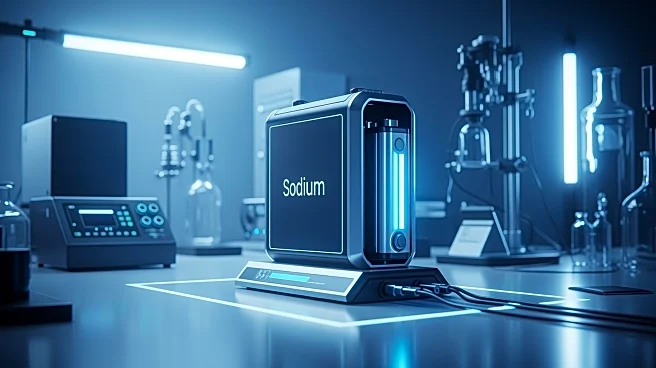What's Happening?
Researchers at the University of Chicago Pritzker School of Molecular Engineering have made significant advancements in sodium-based solid-state batteries, presenting them as a viable alternative to lithium batteries. The study, led by Y. Shirley Meng,
has developed a sodium battery that performs reliably from room temperature to below freezing, setting a new benchmark in the field. This breakthrough addresses the high cost and environmental impact associated with lithium mining. The sodium-based batteries utilize a metastable structure of sodium hydridoborate, which offers high ionic conductivity, making them competitive with lithium batteries in terms of electrochemical performance.
Why It's Important?
The development of sodium-based batteries is crucial as it offers a more sustainable and cost-effective solution for energy storage. Lithium, while effective, is expensive and its extraction is environmentally damaging. Sodium, on the other hand, is abundant and less harmful to extract. This advancement could significantly impact industries reliant on energy storage, such as electric vehicles and renewable energy sectors, by providing a cheaper and more sustainable alternative. The ability to produce both lithium and sodium batteries in the same facilities could also streamline manufacturing processes and reduce costs.
What's Next?
The research team plans to transition their laboratory findings to industrial production, leveraging the established techniques used in their study. This could lead to the commercial availability of sodium-based batteries, providing industries with a viable alternative to lithium. The continued development and scaling of this technology could further reduce the environmental impact of battery production and support the growing demand for sustainable energy solutions.

















